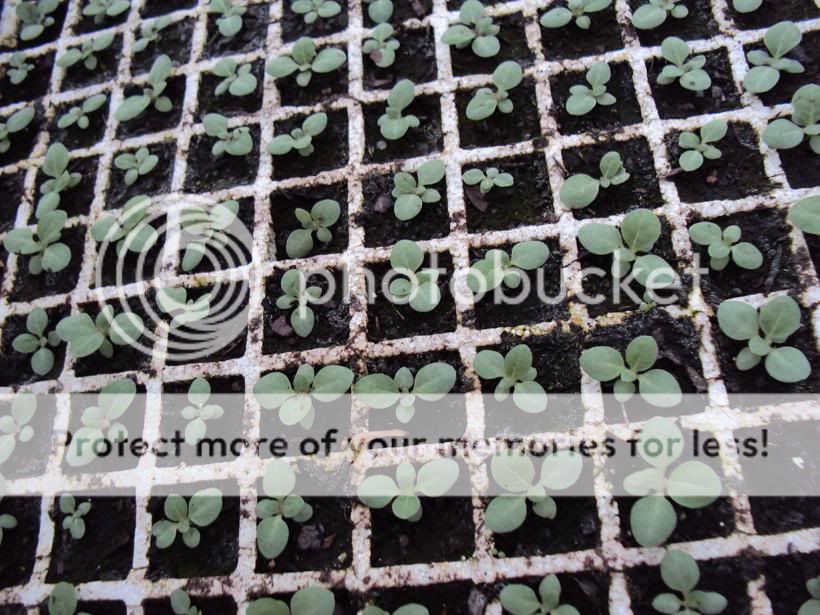Last Thursday our volunteer, Jessica, and I took a nice little drive out to Armilda Barnes’ house to help start seeds for (late!?) cole crops and summer transplants in reused tobacco float trays raised in homemade float beds. I know I’ve talked about Armilda before, she is a huge asset to the program due to her embodied knowledge of gardening, and just about anything else you might need help with. (For instance, plumbing, wedding planning, raising children, canning, car maintenance and I’m sure more!) Well, with her guidance (I’ve planted plenty of seeds but never into tobacco float trays, which need sterilization, a particular soil mix, and require more spacing for certain seeds) we planted 20 flats of herbs, melons, tomatoes, peppers, cucumbers, cabbages, and more. Then, we placed the trays into the float beds, which are a frame lined with black plastic, filled with about 4 inches of water. The whole thing is covered with low hoops which support row cover.
Though this method is pretty awesome and so long as you check the water level, pretty much ensures consistently moist soil and good root growth, there are some downsides. The one that caused Suzi and I the most anxiety this spring was that without a heater in the floor of the bed, freezing temperatures will, of course, freeze the water and thus kill the seedlings, even if they are cole crops. As we all know, this Spring has been strange and some might even say, “What Spring?”. Up until recently there were threats of snow and some of the lowest temperatures we had all winter, so we had to wait until now even to start the “cool” season stuff. Another downside is that fertilizer must be used in float beds because of the type of potting media that’s used and the ever-present water. Armilda uses a standard liquid fertilizer, at the lowest levels possible to support her plants. Though we as a site discourage the use of conventional sprays and fertilizers, we realize that it is very hard to find plant producers that do not use some kind of conventional chemicals. We know Armilda well here and trust that takes good care of the plants and introduces them to as few chemicals as possible, plus she gives us an amazing price!
We definitely learned a lot by working with Armilda and I am now confident that we could make and use our own float beds here at the office to start seeds. If anyone has done this, particularly if they’ve found a way around using the conventional fertilizer method, I would be very interested to hear about it!!!
Happy Gardening!




Leave A Comment